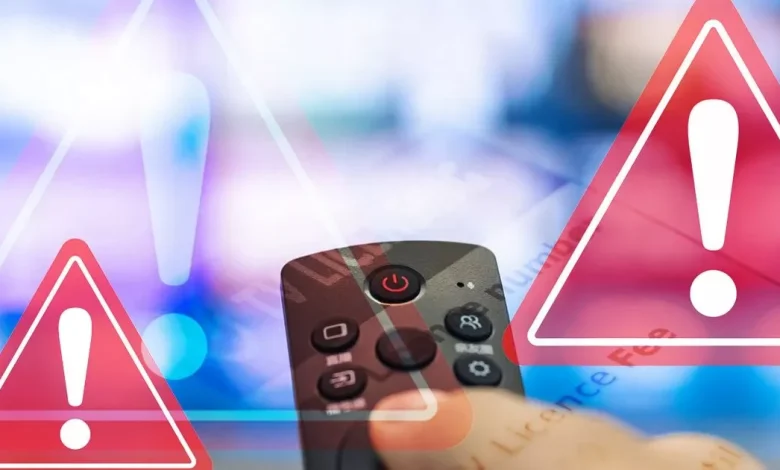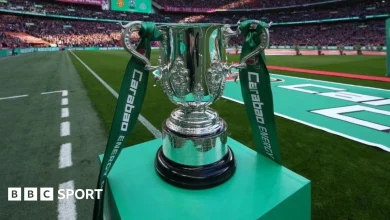TV licence expert shares how people avoid paying annual fee

Lancs Live reporter Amy Fenton debunks some myths surround the TV licence fee
Lancs Live reporter Amy Fenton shares her experiences of being a TV licence enforcement officer(Image: Getty Images)
To legally watch live TV, most people living in the UK are obligated to pay for a TV licence.
The rules regarding who needs a TV licence are slightly more confusing now that streaming platforms such as Netflix and Amazon Prime now offer live TV.
If you watch live TV on any platform, whether it is terrestrial TV, Channel 4, Netflix or any other streaming platform, as well as anything on iPlayer, you must legally have a TV licence.
A standard TV Licence costs £174.50 per year, but Brits can get a black and white licence for a cheaper £58.50.
There are some exceptions to who is legally obligated to have a TV licence (Image: Getty Images)
There are some exceptions to the rules. Certain people, such as those over 75 receiving Pension Credit, are eligible for a free licence, and people who are blind or partially sighted can get a reduction.
Most people will have heard the rumour that you can’t get in trouble for not having a TV licence if you simply refuse to let the enforcement officers into your home. But is that true?
Amy Fenton, a reporter at the M.E.N.’s sister site Lancs Live, worked as a TV licensing enforcement office when she was 18.
She has shared her experiences of working for the TV licensing enforcement team and how people.
Amy said: “I was just 18 when I started working as a TV licensing enforcement officer in Lancashire as part of the Liverpool team and it’s fair to say that I didn’t exactly look like the rest of my colleagues.
“They tended to be retired police officers or army veterans; bouncer-type blokes who were tall, well-built and definitely not the kind of person you would want to mess with. In short; they looked like debt collectors whereas I looked like I was fresh out of sixth form. Which I was.
Amy Fenton worked as a TV licence enforcement officer when she was 18(Image: PA)
“Whether you agree with it or not, and irrespective of what might happen in the future to the controversial fee, if you want to watch telly, a TV licence remains a legal obligation. Refusal to pay can lead to a fine of up to £1,000.
“But, as with many laws, that doesn’t stop people from trying to avoid it.
“During my three years as an enforcement officer in the mid 2000s, one of the most enduring myths when it came to TV licensing was the idea that a fleet of detection vans were nipping around to unlicensed houses in the same way that mobile speed cameras can catch you out unaware.
“Now, I don’t know what the current situation is, but I was always told that the vans were used as more of a gimmick and a deterrent than anything else. Also, they couldn’t actually be used to prosecute individuals because then the technology used would have to be admissible in court – and therefore open to public scrutiny which could be manipulated.
“Another thing I was told by my colleagues was that, at the time, the technology was so bulky that it only worked out of one side of the vans… so if you lived on the ‘right’ side of the road then you were safe.
“As it stands, and until the current Royal Charter ends in 2027, everyone in the UK, and the Crown Dependencies, who watches or records television from any provider as it is broadcasted, and/or who watches content on BBC iPlayer, whether it is on television sets, computers or other devices, is required to be appropriately licenced.
“If you’re caught without one (more on that later) you can be prosecuted for a criminal offence. However, TV licence evasion itself isn’t imprisonable and will only result in a fine, but if you fail to pay that fine then you could, in theory, be jailed.
Amy Fenton with friends in a photo taken at the time she was a TV licensing enforcement officer(Image: Amy Fenton/Lancs Live)
“As an enforcement officer, it was my job to go round and knock on the doors of properties which didn’t have a licence, but obviously not all were evading the fee. Many houses would be vacant or the tenants had only just moved in and hadn’t changed the address on the licence yet.
“But, if someone answered the door, and admitted watching TV without a licence, I would caution them (“you do not have to say anything…) fill in a legal form and then (as would happen in most cases for fear of being prosecuted) set them up on a payment plan.
“We were paid varying levels of commission depending on how the person chose to pay – we got the most if someone paid for it in full or set up an annual, in full direct debit.
“However, if someone came to the door and either slammed it in my face (which happened frequently), or admitted watching TV, but refused to give their name (occasionally), or simply refused to answer the door (very often) there’s very little we could do.
“Enforcement officers aren’t High Court bailiffs – they can’t force entry – and the only remaining option would be for another TV licensing department to get a search warrant – and even then, only if we had seen evidence that someone was watching TV. If the curtains were closed and there was no sight or sound of a TV we wouldn’t have grounds to obtain a warrant.
“While I submitted plenty of forms outlining evidence that a TV was being used (a new Sky dish for example, the tell-tell flickering of light from the front room at night, or the sound of the Corrie theme tune) I can’t recall any resulting in a search warrant being obtained. I suspect that would be a ‘last resort’ if someone was blatantly breaking the law.
“People often ask me how to ‘get away with’ not paying the TV licence fee. It would be irresponsible of us to detail how to do so but clearly there are ways and means.
“Many people choose not to pay a TV licence as a form of ‘protest’ against the fee and the fact that the money goes to the BBC. And, even with an ever-dwindling income from the fee, it’s still a hell of a lot of money in total.
“It’s not just about the soaps, dramas and documentaries either; there is a specific argument from news publishers (mainly newspapers) that asks why BBC News should get such a huge chunk of public money when the rest of the industry is struggling.
“While the Royal Charter will be up for debate when its renewal comes round in two years, the age old arguments will once more hit the headlines, but until then it remains an offence and there can be very serious consequences to TV licence evasion.”




